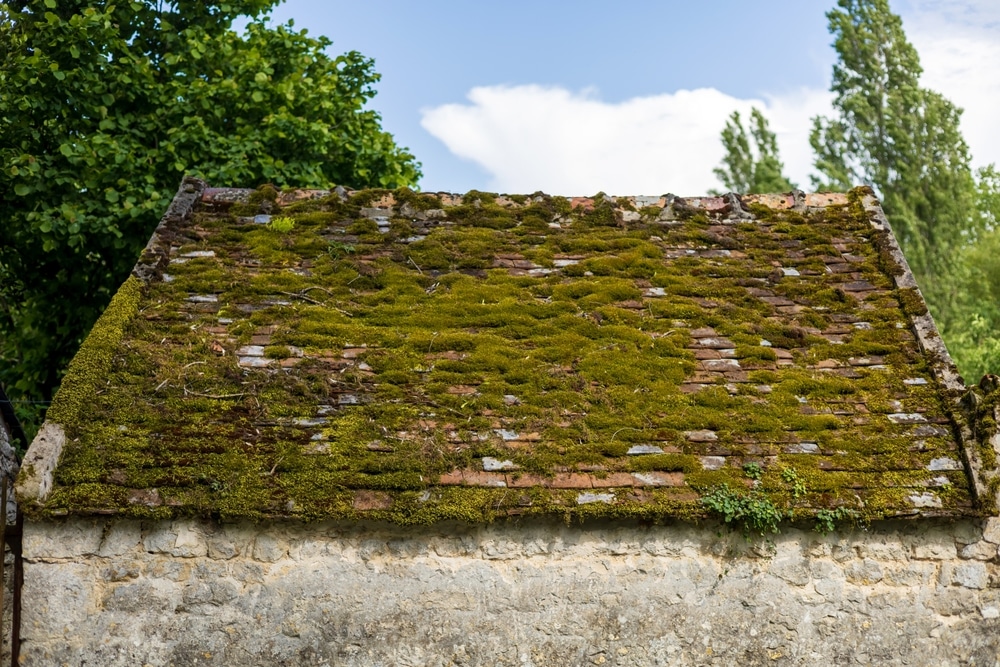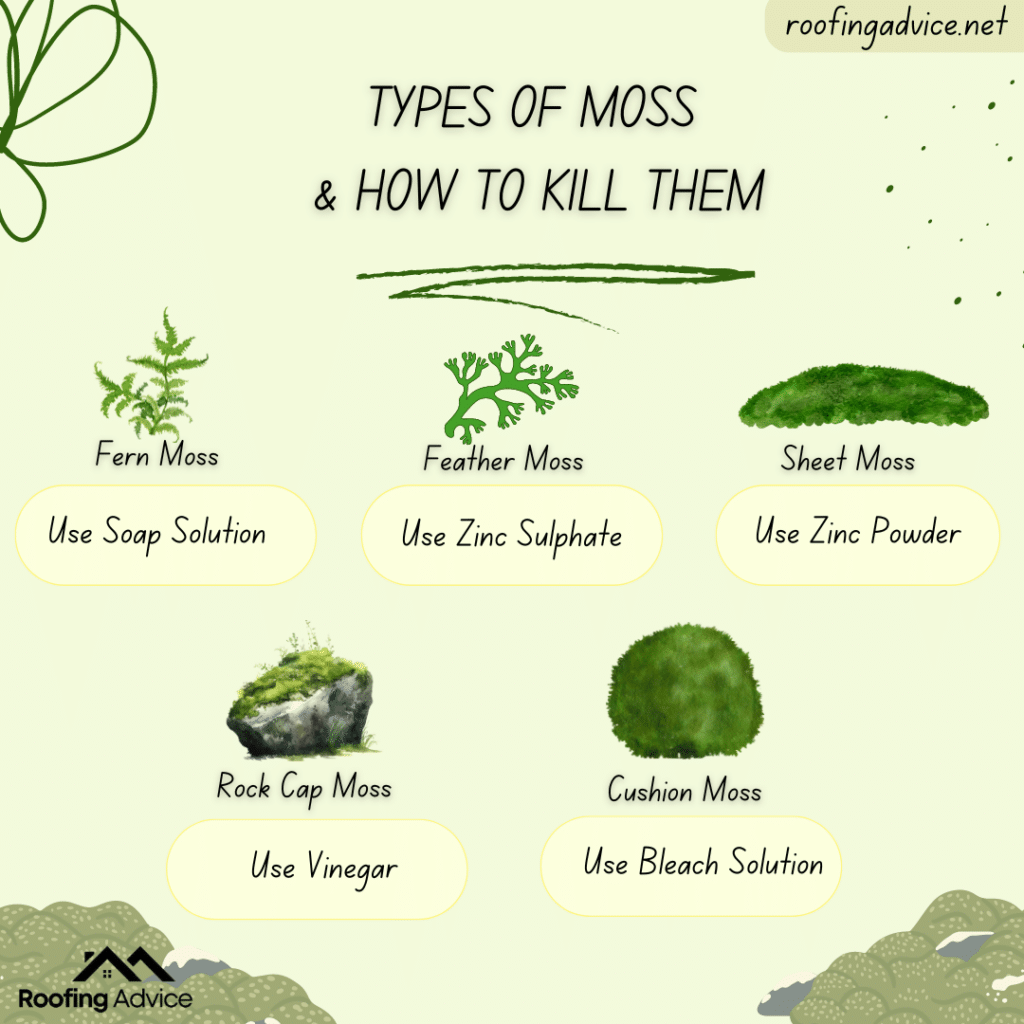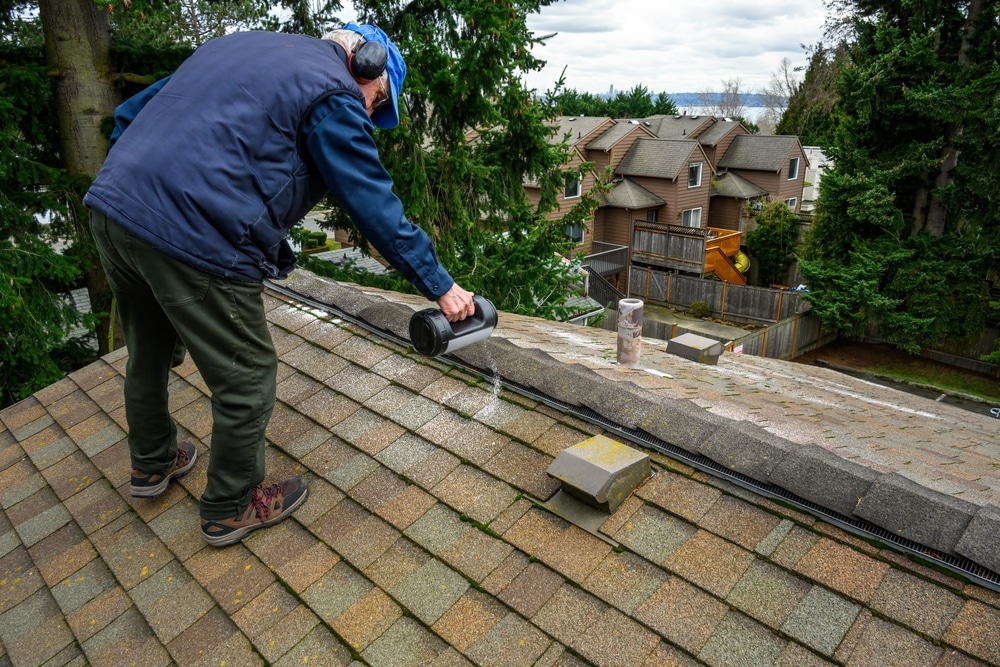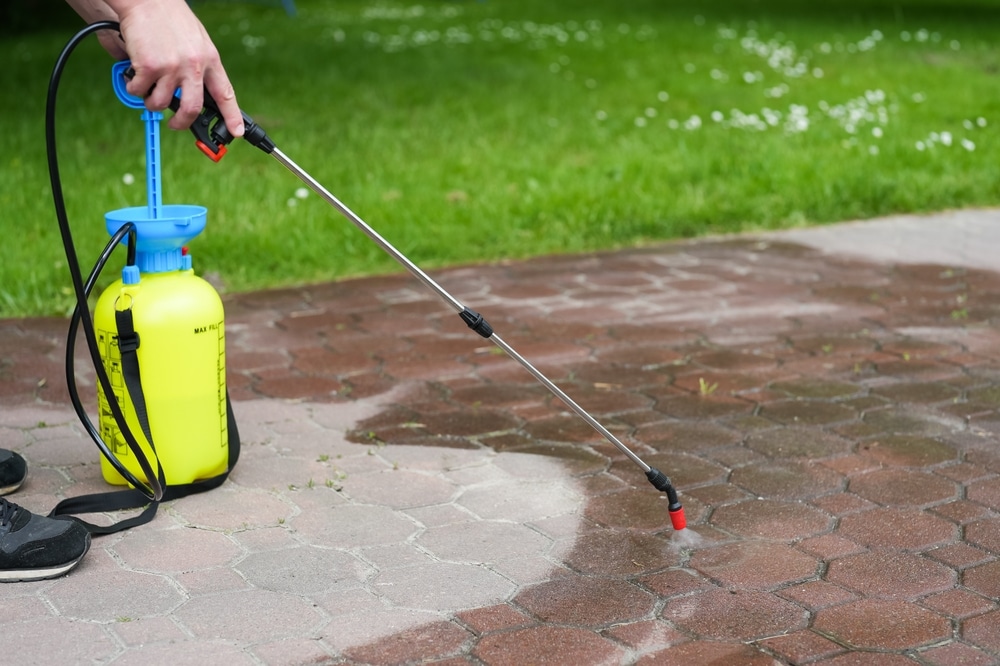Table of Contents
Green might be everyone’s happy color except when growing on your roof. I am talking about moss growth on your roof. Not only does it look bad, but it also causes long-term issues to the durability of your roof if left unchecked. Folks, do you know that moss can spread into the space between shingles and voids, and within no time, it’s going to cover all of your roofs? So, do you want to deal with moss when it’s too late? If not, don’t worry; I have got you covered. This article provides details on the best moss killer for roof and the different types of moss killers.
What is Moss on Roofs?

Before discussing specific products, it’s essential to understand why moss grows on roofs. Moss grows in shaded, damp areas and can spread quickly if conditions are favorable. It often appears on north-facing slopes or areas shaded by trees, where moisture can remain trapped.
Why Use Moss Killers?
Moss killers are designed to eliminate moss and prevent its return. Using a moss killer is crucial because:
- Prevents Damage: Moss can cause asphalt shingles to deteriorate and trap moisture, leading to leaks and structural damage.
- Maintains Aesthetic Appeal: Regular cleaning helps maintain your roof’s appearance.
- Extends Roof Life: By preventing moss growth, you can extend the life of your roofing materials.
Types of Moss Killers

Moss killers come in various forms, each with its advantages and limitations.
Here’s a breakdown of the most effective types in 2024:
a. Chemical Moss Killers
The first type is chemical moss killers that encompass different versions discussed below:
1. Zinc Sulfate
Zinc sulfate is a common ingredient in many moss killers. It works by inhibiting moss growth and killing existing moss.
- Pros: Effective and fast-acting.
- Cons: It can be harsh on plants and vegetation if not used properly. However, it is still one of the best moss killers.
2. Copper Sulfate
Copper sulfate is another effective moss killer. It prevents moss growth by creating a toxic environment for the moss.
- Pros: Long-lasting results and can also prevent algae and lichens.
- Cons: Like zinc sulfate, it can be harmful to surrounding plants.
3. Bleach-Based Solutions
Bleach solutions can kill moss quickly. These are usually mixed with water and applied directly to the mossy areas.
- Pros: Very effective at killing moss and cleaning the roof.
- Cons: It can be damaging to shingles and surrounding vegetation; it requires thorough rinsing.
b. Natural and Organic Moss Killers
You can also go for natural products when deciding on a moss killer for your roof.
1. Vinegar
White vinegar is a natural option that can kill moss and algae.
- Pros: Safe for plants and easy to use.
- Cons: It might need multiple applications and is less potent than chemical solutions. Besides, it might not be the best moss killer for roofs.
2. Baking Soda
Baking soda, mixed with water, can help remove moss.
- Pros: Gentle on surfaces and safe for the environment.
- Cons: It might not be as effective on large moss patches.
3. Soap-Based Solutions
Liquid soap or dish soap mixed with water can help loosen moss for easier removal.
- Pros: Non-toxic and safe for plants.
- Cons: It is not as effective at killing moss; it is more useful for loosening and removing.
c. Moss Prevention Products
However, if you prefer none of the above-mentioned products, some products designed specifically to kill moss are also available on the market.
1. Moss-Resistant Shingles
Shingles with built-in moss-resistant materials (like copper granules) can prevent moss growth from the start.
- Pros: Long-term prevention and reduced maintenance.
- Cons: Higher initial cost and replacement may be required if existing shingles are not moss-resistant.
2. Gutter Guards
Installing gutter guards helps reduce moisture buildup and prevents moss from growing in gutters.
- Pros: Helps in preventing moss growth indirectly by managing moisture.
- Cons: Does not directly kill moss on the roof.
How to Use Moss Killers?

Below is the simple process to apply moss killers on the roofs:
1. Preparation
The first step is preparation, which entails cleaning the roof.
- Clear the roof of debris and loose moss.
- Protect surrounding plants and surfaces from potential damage by covering them with tarps.
2. Application
Now that you have cleaned the roof, choose any of the killer and apply it on the effected areas.
- Chemical Killers: Follow the manufacturer’s instructions for dilution and application. Use a sprayer or brush for even coverage.
- Natural Killers: Apply using a sprayer or pour directly onto the affected areas. Allow it to sit for the recommended time before rinsing.
3. Post-Application
Once you are done applying Moss Killer, there are some steps you should follow for post-application.
- Rinsing: After the moss killer has had time to work, rinse the roof thoroughly to remove any residue.
- Inspection: Check for any remaining moss and reapply if necessary.
4. Safety Considerations
- Protective Gear: Always wear protective gear like gloves, goggles, and a mask when handling chemical moss killers.
- Environmental Impact: Be mindful of the potential impact on plants and wildlife. Use natural or organic options where possible.
Top Recommendations for 2024

Here are some top-rated moss killers for roofs in 2024:
1. Wet & Forget Moss, Algae Stain Remover
It is a popular choice for its ease of use and effectiveness.
- Pros: No scrubbing is required; it works over time with rain.
2. Zinsser Jomax Roof Cleaner
A concentrated formula that is mixed with water.
- Pros: Effective on various types of stains and moss.
3. Moss Out! Roof Cleaner
A fast-acting moss killer that also helps to prevent regrowth. It is one of the best moss killer for roof.
- Pros: Quick results and easy application.
You can check out different types of moss killers on this page and choose the one that suits you.
Last Words
Coming to the end of this discussion, the article covered details on moss killers for roofs. If you are witnessing green growth on any corner of your roof, it’s essential to act right away and choose any of the above-mentioned moss killers. Not only does it affect the integrity of the roof, but it also doesn’t look good. So, folks, read our article guide and make your roof clean.
